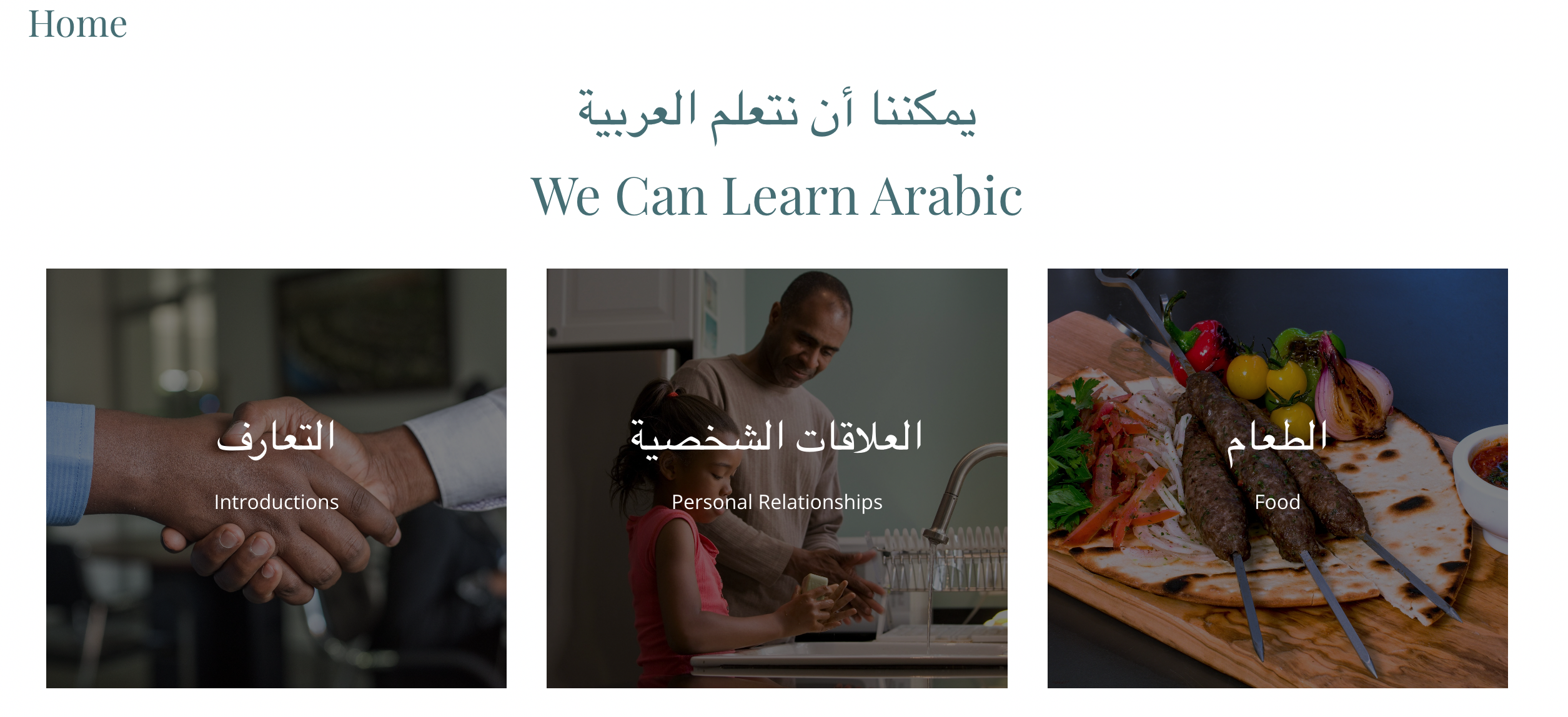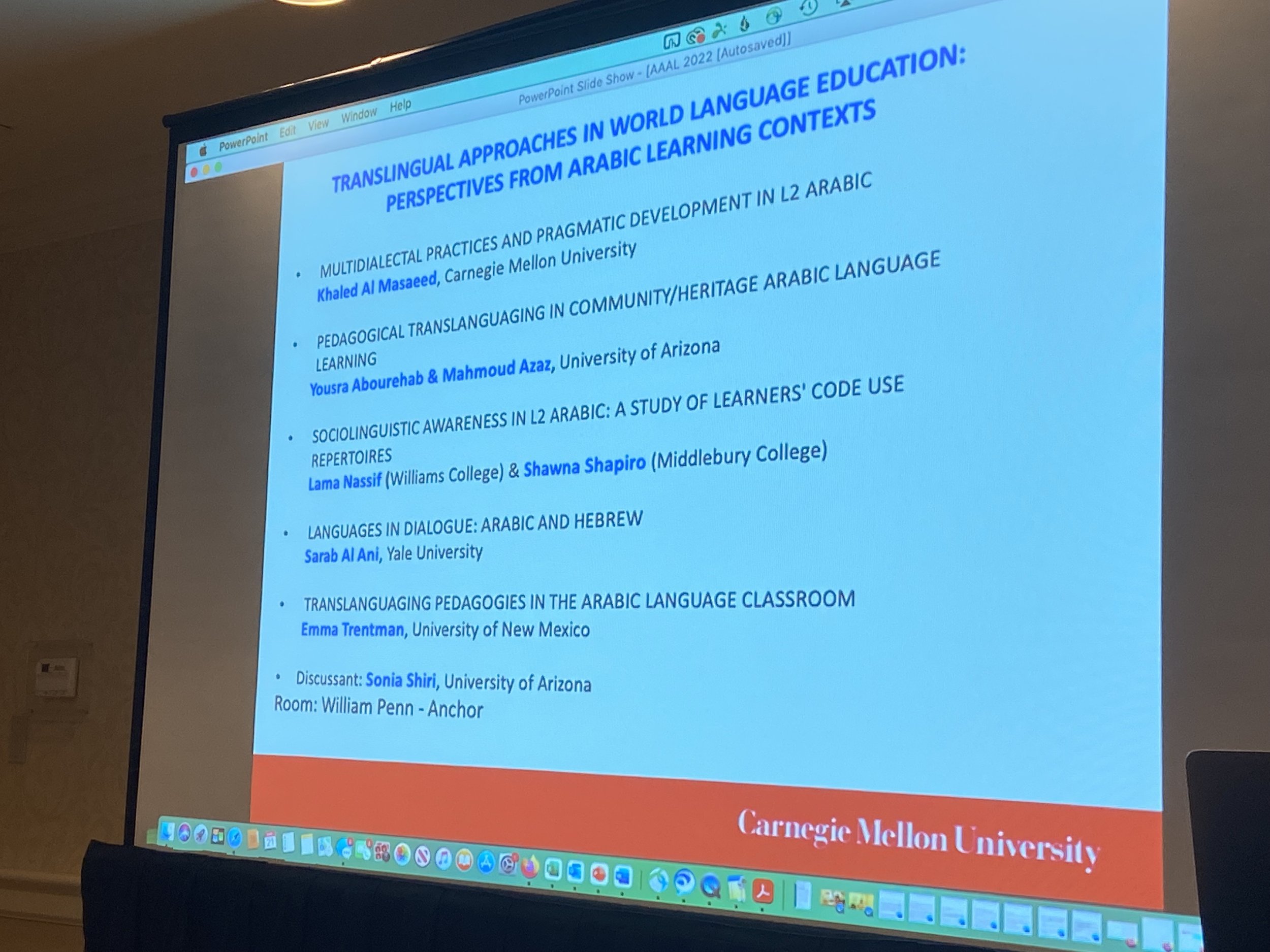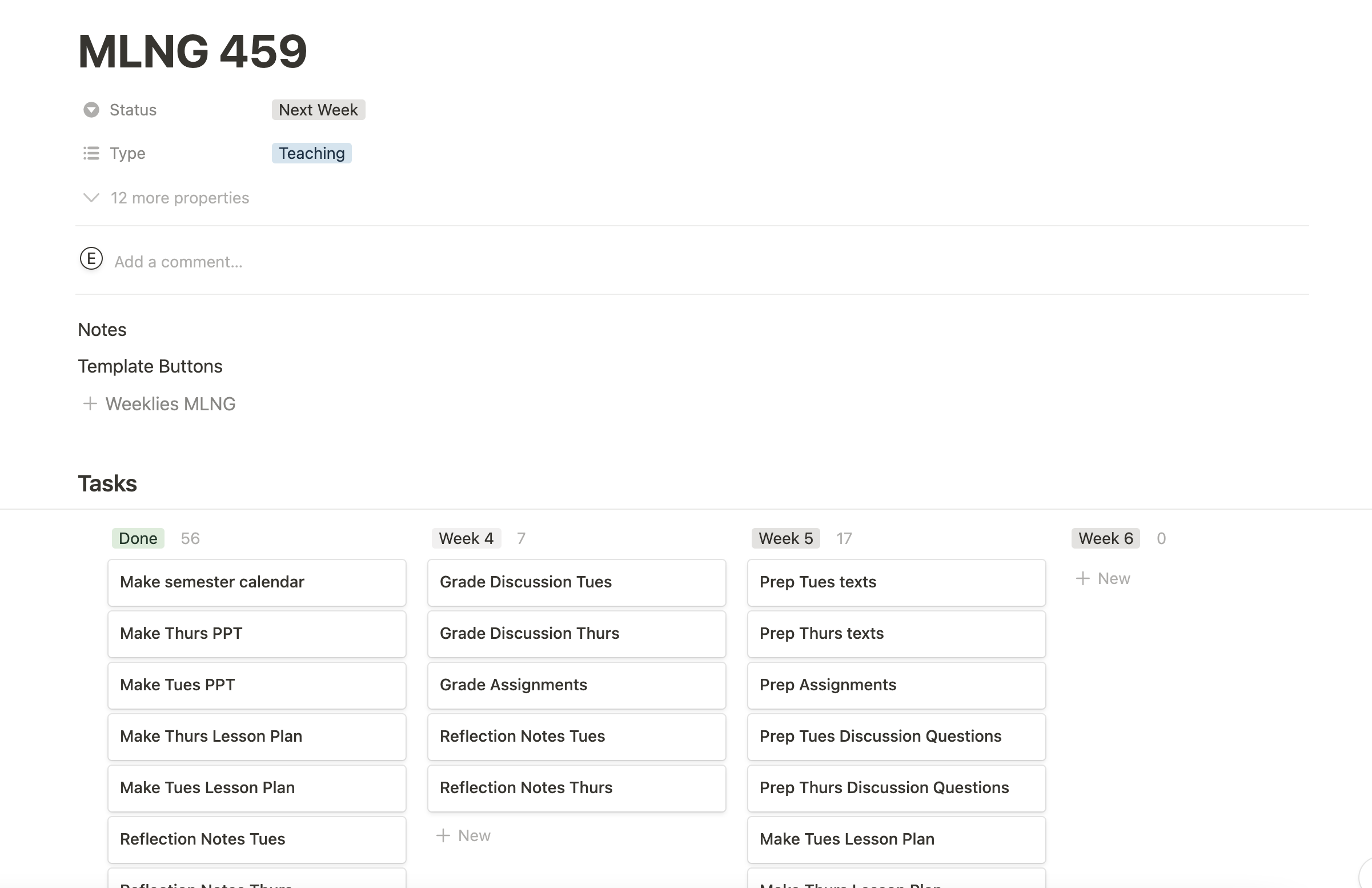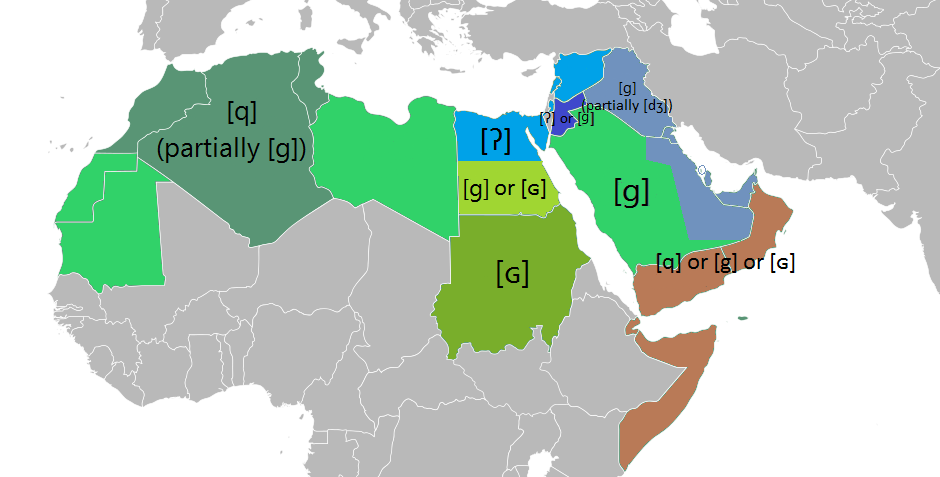Category: Language Teaching
-

We Can Learn Arabic site updates
When we launched the We Can Learn Arabic website in 2020, one of the most exciting aspects was the ability to make regular updates as we test the materials in class. We added new units and made tweaks to the activities in 2020 and 2021. In Summer and Fall 2022, as part of our research…
-

Multilingual and Multidialectal Approaches: Setting up a research team
This fall semester I’m launching a new research project, “Multilingual and Multidialectal Approaches in the Arabic Classroom.” Thanks to funding from the Qatar Foundation International, I also have a research team, including undergraduate and graduate students. This means that I’ve spent the bulk of my semester so far setting up this project, so I thought…
-

Reflections on Four Years of Blogging
It’s hard to believe that it’s been just over four years since I started this blog! To celebrate, I’d like to reflect on this experience, as well as share some previous favorite posts, according to visits and to me!
-

Translingual Approaches in World Language Education: Perspectives from Arabic Learning Contexts
A couple of weeks ago, I co-organized a colloquium with Khaled Al Masaeed at the American Association of Applied Linguistics Conference titled “Translingual Approaches in World Language Education: Perspectives from Arabic Learning Contexts”. Although I have attended the AAAL conference most years since 2007, and it is probably my favorite conference, there are usually only…
-

Language Ideologies in the Wild: Language Learning as a Hobby
Following up on my recent language ideologies in the wild series, in this post I’m back with a collection of examples focused on the ideology of language learning as a fun hobby. As these unrelated examples demonstrate, this is a fairly common language ideology, and while I am all for hobbies, it’s worth highlighting the…
-

Why study languages? Improve your listening skills!
When talking about language learning, I’ve sometimes found people approach this with an all or nothing approach. Specifically, seeing the goal as “becoming fluent” or having the skills to work as a translator. While these are great (and I’m all for expanding our linguistic repertoires as much as possible!) I think a focus on obtaining…
-

Organizing Teaching with Notion
A few years ago I wrote a post on Using Trello to Organize Teaching. Since then, I’ve moved on to using Notion as my digital organization system, and so I thought it was time for an update on how I’m using that to organize my class teaching. Notably, you’ll see that while the app has…
-

Does a multidialectal approach mean teaching all of the dialects?
This is a question I get frequently when I advocate for a multidialectal approach to learning Arabic. The short answer is no.The longer answer is also no, but with a much lengthier explanation, which I thought I’d give in this post. In general, there are two types of people who ask this question. The first…
-

Virtual Exchange with the Stevens Initiative COILed Classrooms
In addition to all of the other excitement this semester, I’ve also been participating in a virtual exchange program with our fourth semester Arabic class, through the Stevens Initiative Connected Classrooms program. While I’ve done virtual exchange before, it’s generally been pairing my students with individual language partners, rather than a classroom. So, I thought…
-

Taking the stressful edge off of November
After 22 years as a student or professor on semester systems where fall semester runs mid August to mid December, I feel pretty confident saying that November is the most stressful month in this semester, and possibly the entire academic year (April, the spring parallel month, is also a contender). Early in my career as…